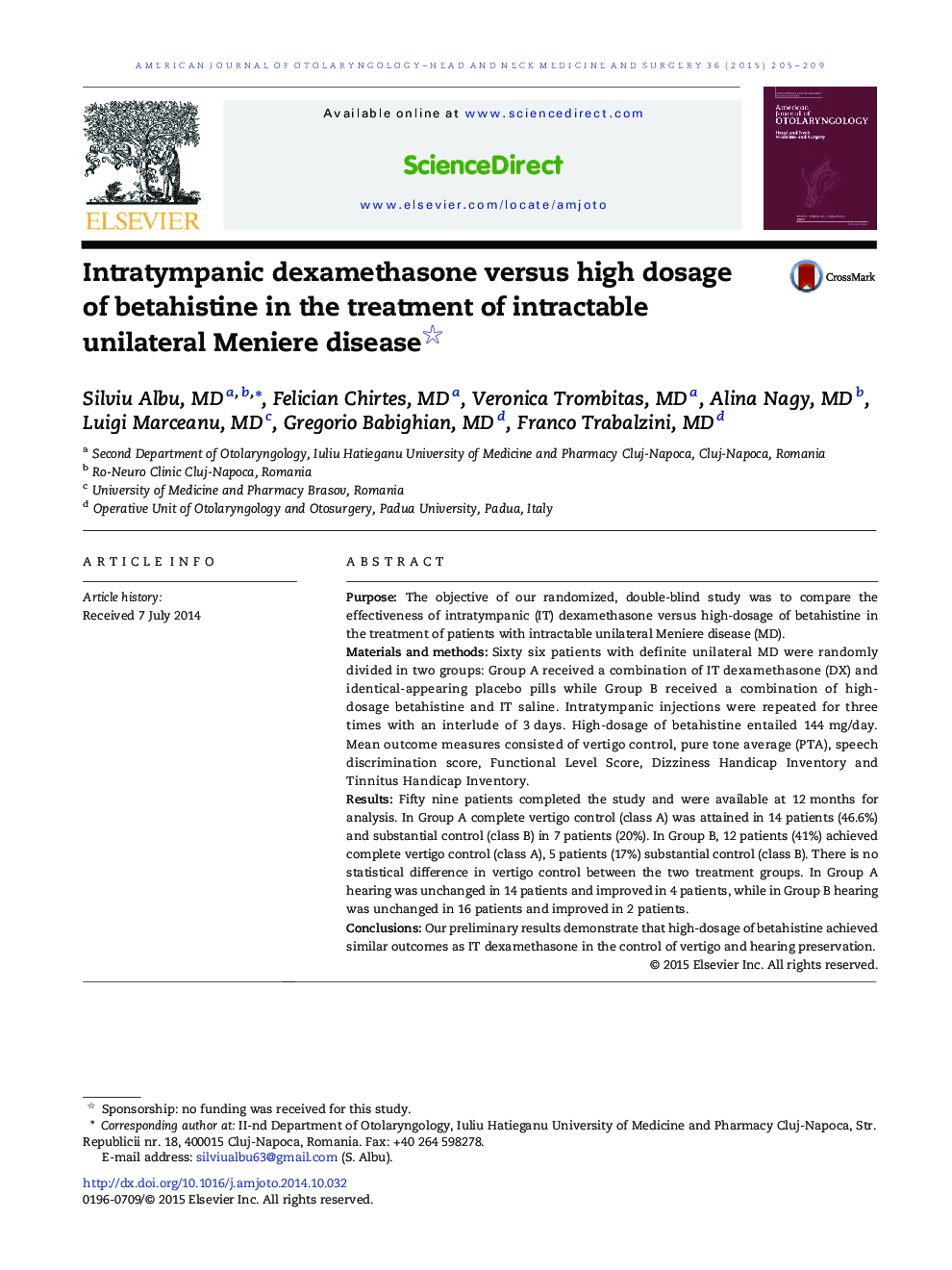| Article ID | Journal | Published Year | Pages | File Type |
|---|---|---|---|---|
| 4103198 | American Journal of Otolaryngology | 2015 | 5 Pages |
PurposeThe objective of our randomized, double-blind study was to compare the effectiveness of intratympanic (IT) dexamethasone versus high-dosage of betahistine in the treatment of patients with intractable unilateral Meniere disease (MD).Materials and methodsSixty six patients with definite unilateral MD were randomly divided in two groups: Group A received a combination of IT dexamethasone (DX) and identical-appearing placebo pills while Group B received a combination of high-dosage betahistine and IT saline. Intratympanic injections were repeated for three times with an interlude of 3 days. High-dosage of betahistine entailed 144 mg/day. Mean outcome measures consisted of vertigo control, pure tone average (PTA), speech discrimination score, Functional Level Score, Dizziness Handicap Inventory and Tinnitus Handicap Inventory.ResultsFifty nine patients completed the study and were available at 12 months for analysis. In Group A complete vertigo control (class A) was attained in 14 patients (46.6%) and substantial control (class B) in 7 patients (20%). In Group B, 12 patients (41%) achieved complete vertigo control (class A), 5 patients (17%) substantial control (class B). There is no statistical difference in vertigo control between the two treatment groups. In Group A hearing was unchanged in 14 patients and improved in 4 patients, while in Group B hearing was unchanged in 16 patients and improved in 2 patients.ConclusionsOur preliminary results demonstrate that high-dosage of betahistine achieved similar outcomes as IT dexamethasone in the control of vertigo and hearing preservation.
